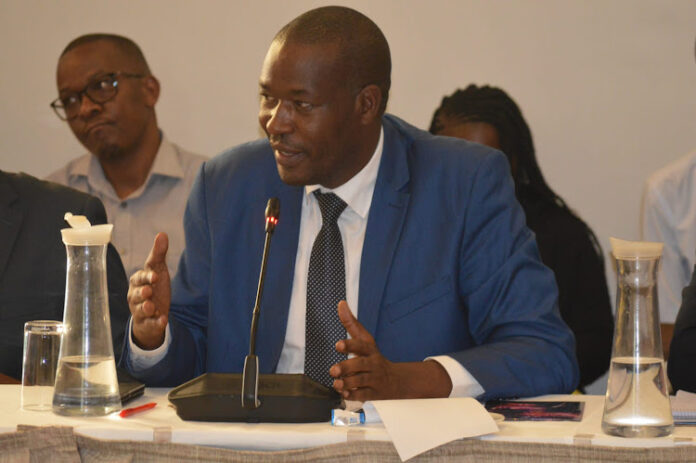NIS to conduct background checks on KNEC examiners.
Nicholas Letting, CEO of the Kenya Accountants and Secretaries National Examinations Board (KASNEB), has proposed a number of initiatives to improve the examination process’s integrity, with a special focus on the Kenya National Examination Council (KNEC). These methods are intended to reduce cheating during national exams.
One of Letting’s recommendations is to include officers from the National Intelligence Service (NIS) in the pre-employment vetting of examiners. This clandestine participation of NIS personnel is meant to detect examination anomalies and cheating, maintaining a high level of integrity in the examination marking process.
Furthermore, Letting recommends disconnecting mobile networks in places prone to cheating in order to reduce exam leaks via mobile phones. Benchmarking with successful examination boards such as KASNEB and HRMPEB is also recommended by Letting to improve examination management effectiveness.
As a deterrence against such fraudulent methods in future exams, Letting’s ideas include blacklisting students who impersonate others. He emphasizes the importance of embracing automation in tests, particularly through computer-based exams that allow for real-time marking.
Following worries about malpractices in the 2022 Kenya Certificate of Secondary Education (KCSE) examinations, MP Julius Melly, Chairman of the National Assembly Departmental Committee on Education, submitted these recommendations in a report. Among the strategies used were cooperation, mobile phone use, impersonation, illicit material smuggling, leaking, and plagiarism.
In response to these results, the committee suggests revising the current legislative framework to apply harsher penalties for examination violations and to handle new offenses connected to information, communication, and technology, as well as social media platforms.
The Teacher Service Commission (TSC) is encouraged to evaluate additional factors such as discipline, infrastructure development, co-curricular activities, and teachers’ personal development as part of the promotion requirements for instructors beginning with the 2024/2025 test cycle.
The committee also requests greater financing for KNEC in 2024/2025 and beyond. This money is meant to assist critical tasks such as competitive and timely remuneration of examiners, transportation of examination materials and people, and the provision of acceptable examiner lodging at marking centers.
These financial resources will also aid in the digitalization of the examination process, assuring conformity with national examination administration norms and improving examination management efficiency.




![Kenya’s Top 10 Marketable Degree Programs [List] Kenya's Top 10 Marketable Degree Programs [List]](https://opportunitiesforkenyans.co.ke/wp-content/uploads/2025/02/Kenyas-Top-10-Marketable-Degree-Programs-List-100x70.jpg)

